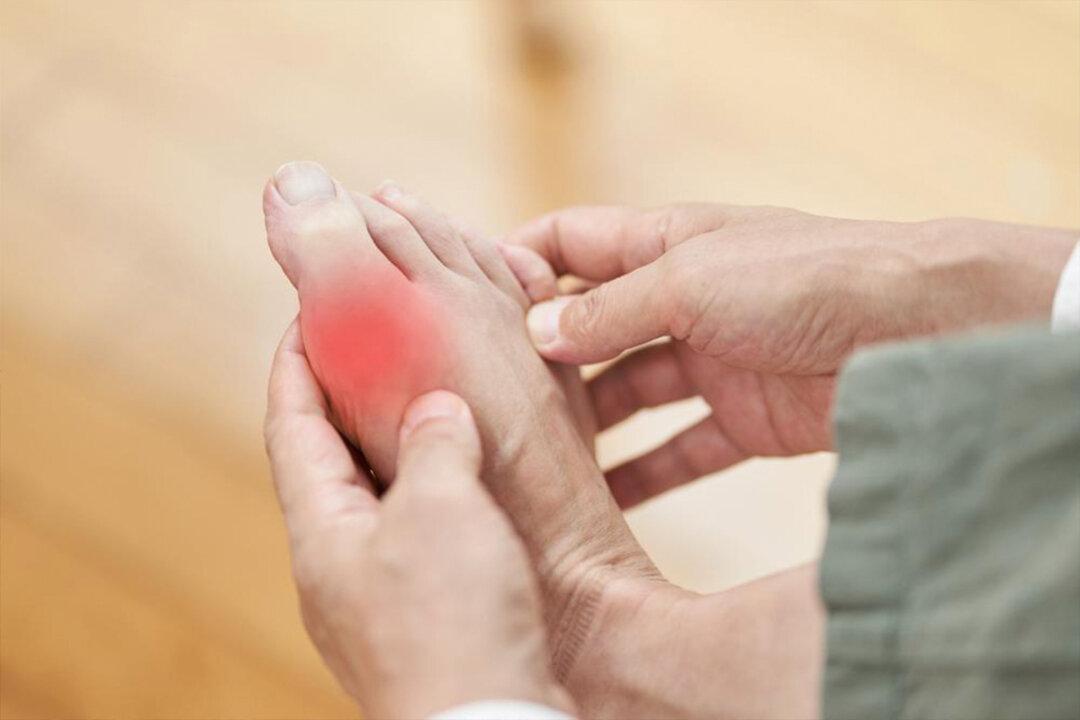Health Viewpoints
Obesity not only affects one’s appearance and self-confidence but also poses a significant threat to physical health. Being obese is more likely to increase the risk of chronic diseases such as heart disease, cerebrovascular disease, hypertension, diabetes, osteoarthritis, sleep apnea, and certain cancers. The latest research has also found a potential connection between obesity and brain degeneration.
A study published in the Journal of Alzheimer’s Disease in January 2023 found that obesity-related gray matter atrophy in the brain is similar to Alzheimer’s disease. It also suggested that managing weight can improve health, reduce and slow cognitive decline in aging, and lower the risk of Alzheimer’s disease.
Chinese and Western medicine each has its approach and characteristics to weight loss.
How Can Western Medicine Help You Lose Weight?
The Western medicine weight-loss regimen mainly includes the following areas:- Diet: Control your diet to reduce calorie intake, which includes reducing the intake of high-calorie and high-fat foods and increasing the intake of vegetables, fruits, and high-fiber foods.
- Physical activity: Perform at least 150 minutes of moderate-intensity aerobic exercise every week, such as brisk walking, jogging, swimming, and the like, or 75 minutes of high-intensity aerobic exercise, such as running, rope skipping, stair climbing, etc. In addition, strength training can also improve muscle quality and increase basal metabolic rate.
- Behavioral change: Adhere to regular mealtimes, reduce sugar and processed foods in the diet, control the urge to snack before meals, and avoid overeating, among other adjustments.
- Medical treatment: In certain exceptional cases, doctors may consider using medication to assist weight loss based on the patient’s physique and special needs.
- Appetite suppressants: The most commonly used components are amphetamine drugs, such as phentermine. These drugs are generally considered for short-term usage and must be used under a doctor’s supervision, as they may cause side effects such as heart palpitations and insomnia.
- Fat absorption inhibitors: One of the common drugs in this category is orlistat, which is used to block the action of lipase, inhibit fat absorption and digestion, and thus have it excreted from the body eventually. Combining orlistat with a low-fat diet is recommended to reduce side effects such as fatty constipation and greasy stools.
- Metabolic boosters: Common metabolic boosting ingredients include caffeine, spices, and green tea extracts. However, there is still controversy about the weight-loss effect and safety of these drugs, so they must be used with caution and under a doctor’s guidance.
- Surgical intervention: For patients with severe obesity, defined as those with a body mass index (BMI) over 40 or over 35 with other health complications, doctors may consider bariatric surgery.
- Roux-en-Y gastric bypass: This is a common weight-loss surgery that divides the stomach into a smaller upper portion and a larger lower portion. Then, the small intestine is connected to the upper stomach, effectively bypassing the lower stomach and a portion of the small intestine. This can limit the amount of food intake, reduce energy absorption, and change the hormone secretion of the stomach and intestines, ultimately achieving weight loss.
- Sleeve gastrectomy: This operation removes most of the stomach, leaving an elongated stomach pouch, thus reducing food intake. This surgery can also change the stomach’s hormone production, decreasing appetite and prolonging satiety.
- Gastric plication: This is a newer kind of bariatric surgery that reduces the stomach’s capacity by folding and suturing it, thereby reducing food intake. This procedure is not yet widely used and is still in the early stages of research and development.
How Can TCM Help You Lose Weight?
The following are commonly employed weight loss methods in traditional Chinese medicine (TCM):- Diet conditioning: TCM emphasizes the importance of a light and health-preserving diet, with a focus on reducing the intake of high-calorie, high-fat, and high-sugar foods. It is recommended to increase the intake of vegetables, fruits, whole grains, and high-fiber foods and consider how the food is prepared, such as steaming, boiling, stewing, etc. TCM also promotes a balanced diet and recommends consuming smaller, more frequent meals to prevent overeating.
- Acupuncture therapy: TCM posits that meridians are the energy channels of the human body, responsible for transporting qi and blood. They are the fundamental substances constituting the body and maintaining all human physiological activities. The body has 12 main meridians, each corresponding to 12 internal organs. These organs are connected to the body’s surface through the meridians. Specific points on the meridians, known as acupoints, serve unique functions. By stimulating the corresponding acupoints through methods such as acupuncture and massage, it is possible to treat diseases related to the corresponding organs. For weight loss, acupuncture can regulate the digestive system, control appetite and metabolism, and accelerate fat burning by stimulating specific acupoints. Commonly used acupoints for weight loss include the Zusanli, Guanyuan, and Taiyuan.

The Epoch Times

The Epoch Times

The Epoch Times
Regulation via Chinese Medicinal Herbs
TCM often employs certain Chinese medicinal herbs to promote weight loss. The herbal prescription varies depending on the patient’s constitution and other symptoms. Common Chinese medicinal herbs include Sophora flavescens, hawthorn, Coicis semen, etc., all believed to regulate the digestive system and promote metabolism.What Herbal Prescriptions Does TCM Use for Weight Loss?
- Wu Ling Powder: A classic Chinese medicine prescription, mainly composed of Poria cocos, Alismatis rhizoma, Polyporus polyporus, Cinnamomi ramulus, and Atractylodes macrocephala, this is widely used in weight loss and the treatment for edema-type obesity. It strengthens the spleen, provides diuresis, and reduces swelling.
- San-Huang Slimming Decoction: Composed of Scutellaria baicalensis, Coptis chinensis, and Cortex Phellodendri, this is a commonly used TCM slimming prescription.
- Lotus Leaf Slimming Soup: With lotus leaf as the main component, it can clear away heat, digest food, and reduce fat. It is believed to reduce edema and promote metabolism.
- Citrus Aurantium and Tangerine Peel Decoction: This is composed of Citrus aurantium (bitter orange) and tangerine peel, used for obesity due to a weak spleen and stomach. It strengthens the spleen, promotes digestion, and lowers fat.
- Coix, Tangerine Peel, and Poria Cocos Decoction: A TCM weight-loss prescription composed of Coicis semen, tangerine peel, and Poria, used primarily to strengthen the spleen, remove dampness, and eliminate fat, this decoction is often used to treat edema-type obesity.
Views expressed in this article are the opinions of the author and do not necessarily reflect the views of The Epoch Times. Epoch Health welcomes professional discussion and friendly debate. To submit an opinion piece, please follow these guidelines and submit through our form here.





